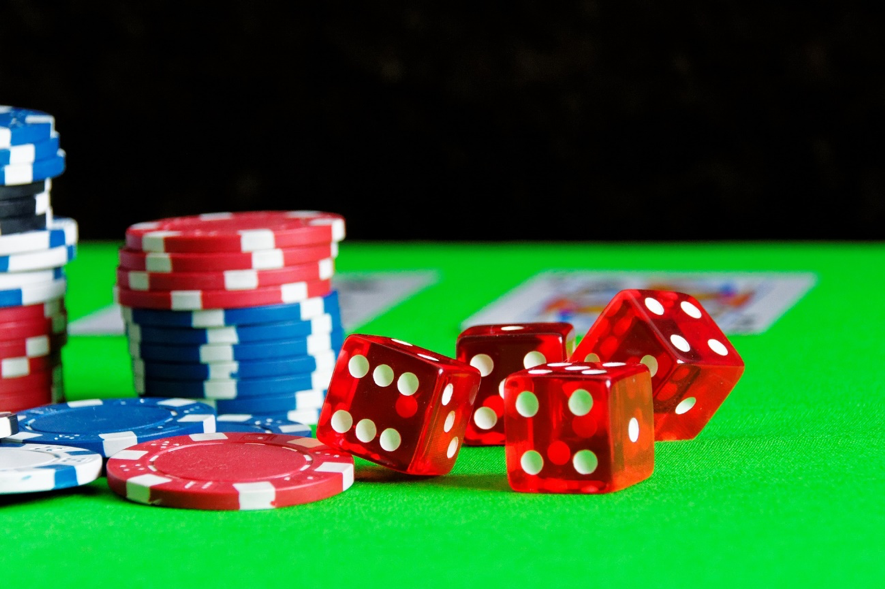
Depending on the society that we belong, betting money on games, such as slot machines or soccer matches, can be considered as pastime without risk. But when this pastime time becomes a necessity, it also becomes a problem. Decades ago, gambling problems were considered a vice of weak and irresponsible people. Today, it is known that this is not the case because since the 1970s it began its study from a mental health perspective.
Currently, according to the World Health Organization (WHO), pathological gambling is a disorder consisting of frequent and repeated episodes of gambling that dominate the person’s life to the detriment of his or her social, family, work and material values and obligations (WHO, 1992). Within the Diagnostic and Statistical Manual of Mental Disorders (DSM-5), pathological gambling is included in the category “Substance-related and addictive disorders” since scientific evidence shows that it produces similar effects to the ones caused by addiction to psychoactive substances.
Pathological gambling is a public health problem that has increased in recent decades, since it is estimated to affect between 0.2% and 0.3% of the world’s adult population, according to the DSM-5, and causes significant personal, family, occupational and economic problems. Studies have shown that it is more prevalent in men than in women and tends to be more problematic among adolescents compared to adults. In addition, it is known that in recent years there has been a considerable increase in the use of online gambling.
What symptoms are characteristic of pathological gambling?
A person with gambling addiction may present the following symptoms:
- Need to gamble increasing amounts of money to feel the desired excitement.
- Feeling nervous or irritable when trying to reduce or quit gambling.
- Having made repeated efforts to control, reduce or quit gambling, without success.
- Having the mind occupied with gambling frequently (e.g., reliving past gambling experiences, planning the next gamble, thinking about how to get money to gamble).
- Gambling often when feeling uneasiness (e.g., helplessness, guilt, anxiety, depression). That is, using gambling to regulate emotions.
- After losing money gambling, returning another day to try to “regain” losses.
- Lying to hide their degree of involvement in gambling.
- Endangering or losing important relationships, jobs, or academic or professional careers because of gambling.
- Relying on other people to help with money to alleviate their desperate financial situation caused by gambling.

What causes and maintains pathological gambling?
It is not possible to establish a specific cause. Research in this area is very recent and has provided uncertain data, but generally there are multiple factors that interact with each other and increase the likelihood that a person will end up suffering from a gambling problem. Among the risk factors proposed by the American Psychiatric Association are the following:
- The high accessibility to gambling (casinos, betting shops, etc.).
- Exposure and gambling culture within the family.
- Lack of discipline and permissiveness in the family environment.
- High importance given to money and little emphasis on saving.
- Having parents with unstable personalities.
As to why this problem is maintained over time, we find several mechanisms involved:
- Positive reinforcement. This mechanism is triggered when we get a reward or something that is positive for us. In this case, one of the most powerful reward would be the money won in a bet or game. But not only economic reinforcement comes into play, but also social reinforcement (the people who may be encouraging the player, or the friendships established in that environment) and physiological activation (these games activate the areas of the brain related to reward and make us want to repeat the game to feel that stimulation again). These games are well designed for being addictive because they are based on an intermittent and variable type of reinforcement. This means that we never know when we will win the prize, so it is more likely that there are people who keep trying because they think something like “what if I stop playing now and this was the good one?”
- Negative reinforcement. This is caused when we avoid something unpleasant and we feel relieved. In many cases, the person with this problem has found in gambling a “refuge” in which he/she forgets his discomfort (family, work, social problems…) for a while. The problem is that this “way out” is not only not helping him/her to face his/her current problems, but it is also causing many other problems such as debts, more family conflicts, etc.
- Distorted thoughts. Gambling encourages many irrational thoughts that do not correspond to reality. It has been observed that the most frequent distortions among people who end up developing a gambling addiction are: believing that they have strategies to control the outcome of gambling (illusion of control), attributing successes to personal factors and failures to external factors (flexible attribution), believing that if a result has not showed up for a long time, it is more likely to appear (representativeness heuristic), believing that, since more publicity is given to winnings, these are more likely than losses (availability heuristic), or thinking about what is won without taking into account what is lost (absolute frequencies). All these beliefs increase the probabilities that the person continues gambling despite the negative consequences.
Pathological gambling is a serious problem that should not be taken lightly, as it can end up with devastating consequences for the person and their relatives. If you feel identified with what you have read or it has reminded you of someone close to you, do not hesitate to contact us so that we can give you advise and help you to overcome the problem.
References:
American Psychiatric Association (2013). Diagnostic and statistical manual of mental disorders (5th ed.). Arlington, VA: Author.
Sánchez Hervás, E. (2003). Juego patológico: un trastorno emergente. Trastornos Adictivos, 5(2), 75 – 78.
Sánchez-Ramos, R., & Valdez-Montero, C. (2019). La problemática social del juego patológico: un nuevo campo de exploración para el trabajo social. Margen, 94.
World Health Organization. (2016). International statistical classification of diseases and related health problems (10th ed.). https://icd.who.int/browse10/2016/en
Aina Fiol Veny
Psychologist Col. Nº B-02615







